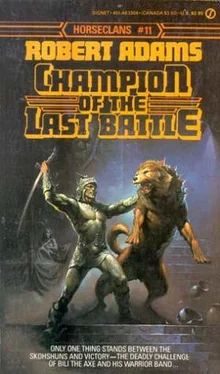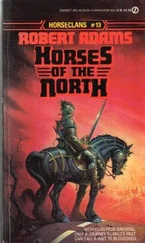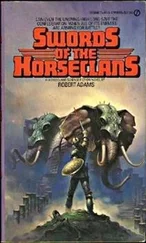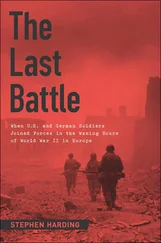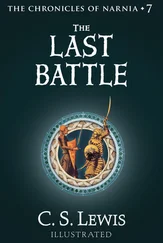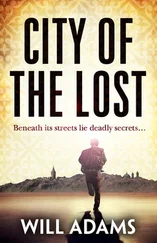“Prince Gilbuht, King Byruhn’s younger brother and the sire of Prince Mahrtuhn Gilbuht, also had this milder form, as too did his only son, and we Kleesahks had long since given the same help to them.
“But the more serious form of the affliction was the legacy of the unfortunate King Byruhn, though the severity was not at first apparent. When it did become evident—in the form of a couple of full-scale seizures, complete transformations into the beast shape along with its terrible appetite—I at once devoted long years to slowly helping him erect a mental control over that regrettable tendency. By the time he had attained his twenty-fifth year, he had the ability not only to recognize the incipient onset of an attack of the affliction but that of competently coping with it, staving it off, with mental powers alone.
“Of course, although I doubt seriously that either of them ever told of it abroad, this hereditary affliction is also the real reason why neither of the last two princes—young Mahrtuhn Gilbuht and King Byruhn—ever sired offspring on any of their wives or women. Byruhn wished to take no slightest chance of passing so heavy and loathsome a burden on to any son he might sire—for some reason, females do not seem to be afflicted—and so he years ago prevailed upon me to perform a certain surgical procedure that rendered him completely sterile, but without affecting in any manner or means his performance as a whole man.
“Prince Mahrtuhn Gilbuht, although he bore but the milder variety of the affliction, also sought me out for this same procedure and I accommodated him, for it did much to ease his gentle nature and troubled mind. Upon his accession to the throne of New Kuhmbuhluhn, or right soon thereafter, it had been his intent to formally adopt an heir who might not be of so close a relationship as to carry the same intensity of the beastly affliction of his house. But as you know, Lord Champion, poor young Mahrtuhn Gilbuht died most gallantly before he ever had the chance to carry out aught of his plans.
“What King Byruhn would have done, I know not, but there on the road from that dreadful battle, when I told him that his royal father’s spark of life had winked out, he remarked to me that he and I both knew that he must be the very last king of the House of Mahrloh and why. Perhaps he too intended to adopt a distant cousin as his heir—I know not.”
“But, Pah-Elmuh,” probed Bili, “you say that you had long ago taught Byruhn how to suppress these changes into wolf form. Then why did he suddenly lose his control and begin to stalk by night, killing and rending and devouring innocent folk? Why would he have slain Oodehn, yet not even try to eat him?”
“As to the sad death of my Oodehn, Lord Champion, I know not why he was slain—perhaps mere bloodlusting ferocity of the shameful thing King Byruhn had, through no fault of his own, become. As to why he did not then eat of my son, because none of these men who become beasts in this affliction ever will eat, in the beast shape, of any save human flesh.
“Why King Byruhn lost his carefully nurtured control, well, Ican but speculate that perhaps the injury to his head had a detrimental effect on that part of his brain that housed his control. It also could be that as his man body lay slowly dying of lack of proper nourishment, the basic survival instinct awakened the beast in him and sent it out in search of the food needed to, sustain them both. But now we never will know the real truth.”
The morning of the set battle dawned with a bright glare of sunlight, presaging a hot day to come. Cottony islands of white cloud floated here and there in the pale-blue skies, peacefully sailing the high, airy oceans far above the bloody affairs of men.
But on this particular area of the earth, below that serene, celestial calm and stillness, drums had begun to roll even before the dawning, bugles to peal their imperative notes, men to shout orders, while horses stamped and neighed and snorted, metal rattled and clanked, leather creaked. There was neither quiet nor calm anywhere in the camp below or the city above, as two groups of warriors prepared to do again that which they did best—fight and maim and kill other warriors.
As prearranged, Sir Djahn Makadahm was the first man to ride out from the stockaded camp onto the space between camp and mountain that had been agreed upon as the site of the coming passage-at-arms. Almost immediately, he was joined there by the chosen herald of New Kuhmbuhluhnburk, Freefighter Captain Sir Fil Tyluh.
They two had met before, whilst Sir Djahn was being entertained in the city. Now both shucked gauntlets and clasped hands. “When will his grace of Morguhn arrive?” asked the Skohshun.
“Shortly, Sir Djahn,” Fil Tyluh replied. “What of your own command party?”
“As soon as they see enough of your officers and nobles down here to reassure them that none of your long-range engines are likely to cast a wainload of rock upon them.”
Silently, Tyluh beamed the reply to Bili, who sat his big stallion at the head of his already formed-up column within the passageway of the barbican, and Bili, in his turn, mindspoke the black horse he bestrode, “Now, my dear brother. At a slow walk, proudly, impressively.”
Down the full length of the curving and recurving roadway, Mahvros progressed, his steel-shod neck arched proudly, prancing and capering, lifting his hooves high in a practiced parade walk. In all the cavalcade of New Kuhmbuhluhn noblemen and their mounts, Mahvros knew that he was the biggest, most beautiful, strongest and most dangerous warhorse, and his pride was plain to any man or horse watching his performance along the route of the column.
Bili had flatly refused the strong suggestion of councilors and certain others that he allow the palace smith to alter a harness of the late Prince Mahrtuhn Gilbuht to fit him, instead wearing that same three-quarter suit of plate he had worn when first he met the Kuhmbuhluhners nearly three long years agone. The only concession to their desires he had made was to allow a golden circlet, such as their own dukes displayed, to be affixed around the brows of his helm and a bunch of gold-tipped red plumes to be fastened atop the bowl of the helm.
He carried his own big double axe cased at the off side of his saddle pommel, a selection of Ahrmehnee darts in an open quiver on the near side. The sword he had taken from his downed opponent on the last occasion he had fought Skohshuns hung at his left side, a target hung from his cantle, and a long, broad dirk from his waist belt; a slender dagger was tucked into the top of one boot and a thick-bladed knife into the other. A two-quart skin of brandy-water hung from the off side of the cantle, balancing the target, and between them was lashed a head-sized ball of netting.
Once upon the surer footing provided by the soil of the plain, Mahvros curvetted twice, then settled back into his proud, graceful, strutting walk.
Immediately the column of riders had been seen to be proceeding down the mountainside, the main gate of the camp of the Skohshuns had been gapped and, as Bili led his followers out onto the open ground toward the spot whereon the two heralds awaited them, a similar column of mounted officers and standard-bearers had issued from that open gate.
Even before Sir Djahn introduced them, Bili had recognized Brigadier Sir Ahrthur Maklarin as the armored officer who had attacked him at the last battle.
“So this is the famous Sir Bili, Duke of Morguhn and most accomplished war captain, eh?” remarked Sir Ahrthur, smiling. “You’ve cost us dearly, young sir, dearly indeed, and we hope to reciprocate in greater or lesser measure, this day.”
Bili grinned. “You have an exceeding hard head, apparently, Sir Ahrthur. I’d have thought that I cracked it wide with the toe of my boot, back at that battle in the spring.”
Читать дальше
